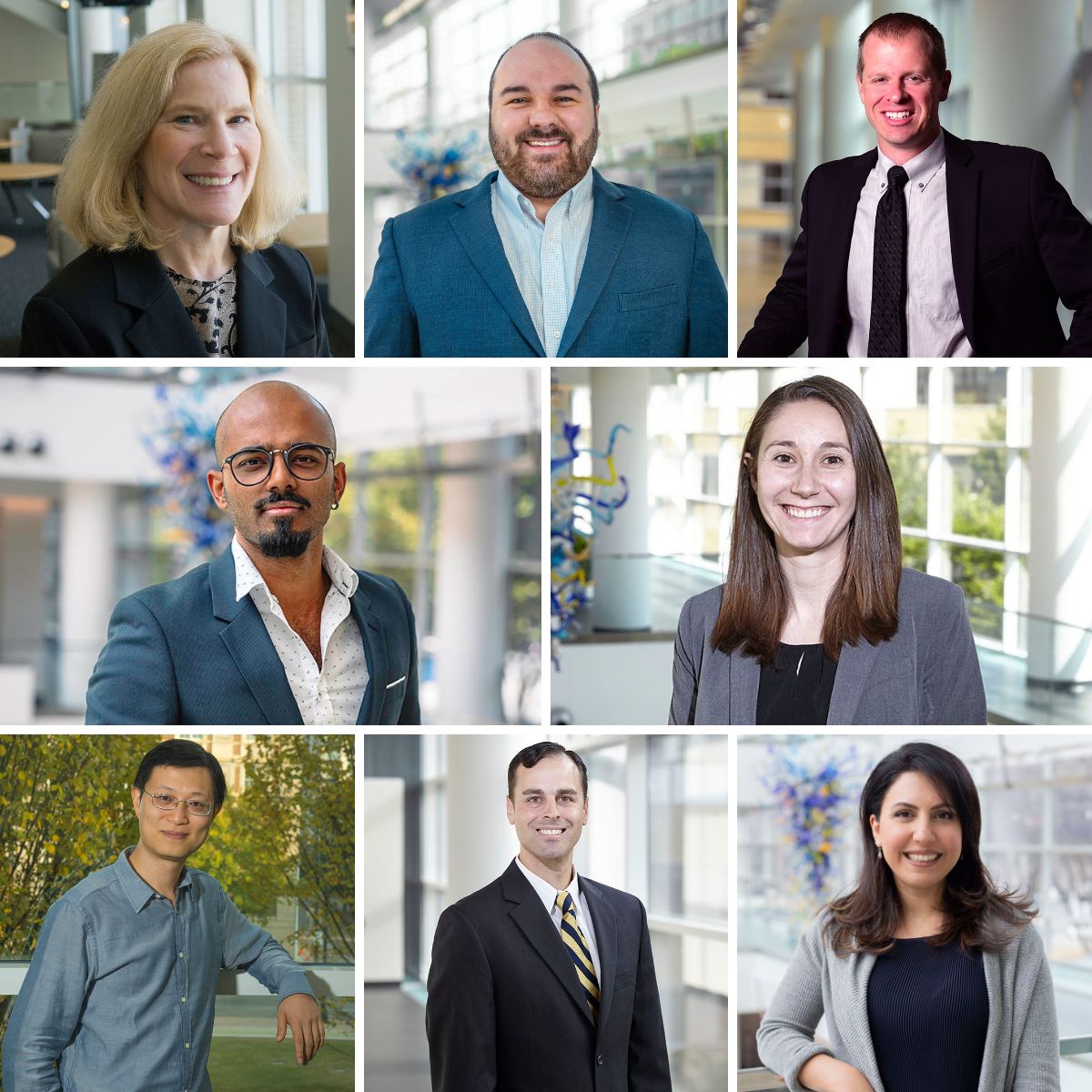The Ray C. Anderson Center for Sustainable Business (Center) at the Georgia Tech Scheller College of Business has completed its second cycle of grants through the Educational Innovation initiative. Led by Professor Ravi Subramanian, the initiative provides support to faculty who commit to implementing sustainability into their courses and pedagogy. The ultimate goal of the community is to serve students interested in acquiring sustainable business competencies in Scheller programs, from undergraduate to graduate and executive education. The community creates potential for growing Scheller programming, such as developing executive education courses and building on the certificate in sustainable business to develop a minor.
Subramanian says, “The contributions of faculty in this community have played a role in propelling Scheller College into Fortune’s Top 10 Best MBA Programs for Sustainability.” Participating faculty in a variety of disciplinary areas updated their course content and learning objectives to cover a spectrum of sustainable business topics. Examples of course infusions and innovations include: designing entirely new courses, adding new course content, designing new course projects, and inviting guest speakers on sustainable business topics.
In Spring 2024, the second cohort of the Educational Innovation Community proposed enhancements to courses spanning various educational programs at Scheller. The enhancements were developed during Summer and Fall 2024. Eight faculty members completed projects:
Katie Badura, assistant professor of organizational behavior, infused sustainability case studies into the MBA core course, MGT 6502/6510 EM - Leading People and Organizations. She introduced two new case studies that showcase sustainability. Students now consider the role of sustainability when covering the topics of creativity, innovation, organizational culture, and organizational change.
Justin Blann, assistant professor of accounting, infused sustainability content in MGT 4015/6015 – Advanced Managerial Accounting (undergraduate) / Managerial Accounting II (MBA elective). The course emphasizes emerging and contemporary business trends and their intersection with traditional cost and managerial accounting topics. New course content explores sustainability and other environmental, social, and governance topics.
Ryan Blunck, senior lecturer of accounting, added a sustainability reporting module to his core MBA course, MGT 6000 - Financial and Managerial Accounting. Recently, the Security and Exchange Commission began requiring U.S. firms to disclose information about climate-related risks and plans. Add this development to voluntary sustainability disclosures and the disclosures that are already required internationally, and it is clear that accountants of the future will need to understand the reporting of sustainability-related information.
Abhishek Deshmane, assistant professor of operations management, updated course content in MGT 4367/6400 - Revenue Analytics - for undergraduates and MBAs. Students learn about the balance between profitability and social responsibility, and the long-term implications of pricing strategies on product/service access, repeat interactions, and brand reputation. The course equips students with a holistic understanding of revenue management that includes the potential societal impacts of their decisions.
Chris Gu, assistant professor of marketing, infused sustainability content into the core undergraduate course, MGT 2250 - Management Statistics. A new module introduces the application of statistical concepts to sustainable business operations, governance, and beyond. The integration of environmental, social, and governance (ESG) topics into statistical education emphasizes the transformative role of data-driven decisions in fostering societal progress and sustainability. Statistical techniques are applied to business challenges such as carbon emissions reduction and workforce scheduling optimization.
Tim Martin, senior lecturer of operations management, infused sustainability content in the core MBA course, MGT 6501 EMA/EMO - Operations Management. In-class discussions and exercises draw upon Martin’s experience of working at a clean energy firm for 15 years. Topics such as product development, management of technology, and operations strategy all now contain a sustainability component. Two new sessions focus on case studies about building sustainability into supply chains.
Morvarid Rahmani, associate professor of operations management, infused sustainability into the core MBA course, MGT 6501 - Operations Management. Students learn to apply operational concepts to integrate social and environmental impacts with financial objectives. A new course topic is an operational perspective on creating and measuring impact.
Deborah Turner, associate professor of accounting, infused sustainability content in an Evening MBA course, MGT 6000 EM - Financial & Managerial Accounting. The new content introduces the integration of environmental, social, and governance (ESG) metrics across both financial and managerial accounting. At the end of the course, students should be able to integrate ESG metrics to facilitate good business decisions across a wide range of financial reporting and managerial decisions.
Creating a sense of community has been a priority of the initiative from the start. On April 24, 2025, grant recipients connected with each other and shared their work during a faculty event. Scheller College and Center leadership spoke of the value of the initiative, with Soumen Ghosh, senior associate dean for faculty and research, calling it “a huge success story.” Current and past grant recipients summarized their sustainable business course infusions and reflected on the impact of the infusions on the learning experience and classroom engagement.
“One of the goals of the Center is to educate the leaders of tomorrow, which includes how to be a good steward,” said Beril Toktay, founding faculty director of the Center. “We try to make sure that social and environmental considerations come into play in courses about all business functions – not just sustainability-focused courses.” She thanked Subramanian for his efforts in creating a growing community of faculty who are bringing sustainability concepts into their classes and sharing their infusion insights with each other.
Written by Jennifer Holley Lux
